B2B buyers aren’t buying the hype anymore. They’re sharp, skeptical, and deep in research mode long before sales gets a shot. Slick decks and shiny G2 badges? Not enough to win them over.
To earn trust and close deals in 2025, vendors need to show up where it counts and build authority across multiple touchpoints.
Based on internal research, real-world observations, and emerging buyer behavior patterns, we’ve outlined the 6 most relevant things buyers are looking for in B2B purchases today. You’ll also get a breakdown of how priorities shift between high-ticket and low-ticket offerings.
1. Trust and authority: The non-negotiable
When buyers are deciding whether to commit to a €5,000/month cybersecurity retainer or a strategic consultancy deal, they’re not impulse shopping. They want to know:
- Who else trusts you?
- Can you be considered an expert in your field?
- Do you have any social proof outside of your own pitch deck?
75% of B2B decision-makers say they trust brands that partner with industry experts or influencers.
Besides that, podcast appearances, published thought leadership, and referrals from trusted peers all feed into one thing: authority. In high-ticket sales, trust isn’t a bonus – it’s the product.
2. Real reviews: Reddit > G2
G2 and Clutch still matter, but many buyers know those reviews can be gamed. That’s why unsponsored, unfiltered feedback is now a bigger trust factor than ever.
Buyers are actively searching Reddit threads, LinkedIn comments, and community Slack channels for raw, honest takes on your product or service. A comment from a real user in a niche LinkedIn thread can do more than 15 polished G2 reviews.
And when it comes to Reddit specifically, 9 out of 10 B2B decision-makers on Reddit have final purchasing authority and use the platform to inform and accelerate those decisions. Moreover, 78% say the platform helps them decide faster.
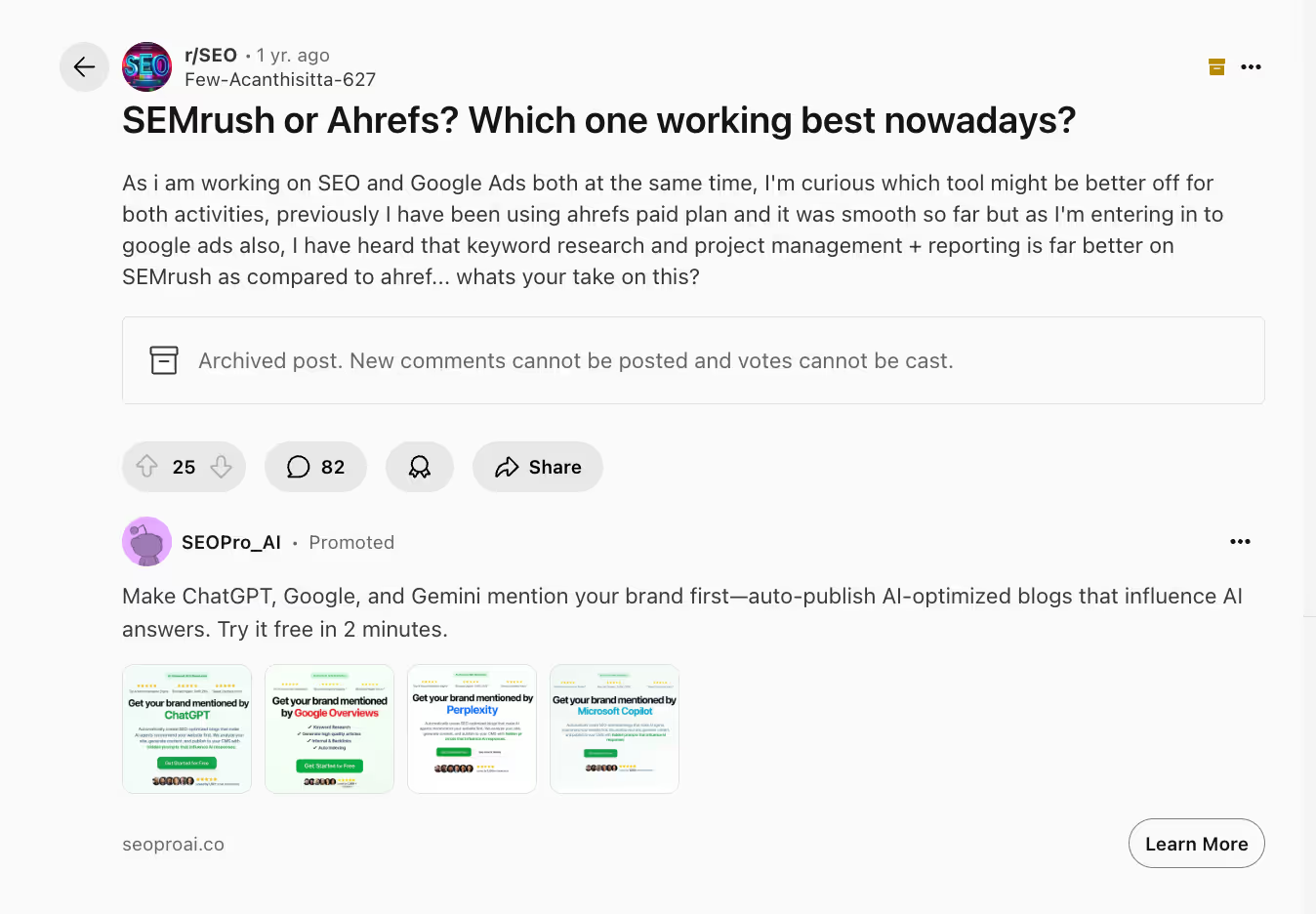
If you’re not being talked about where the real conversations are happening, you’re practically invisible.
3. LinkedIn presence = Digital first impression
LinkedIn is the new handshake. It’s where buyers vet the founder, the team, and the culture behind the product. They check:
- Is this founder credible?
- Do they share valuable content?
- Are their employees engaged?
In fact, 82% of buyers look up a sales rep on LinkedIn before even responding to outreach, so if your presence there doesn’t build trust, the conversation may never start.
Also, a weak or nonexistent LinkedIn presence can make even a great product look like a ghost company.
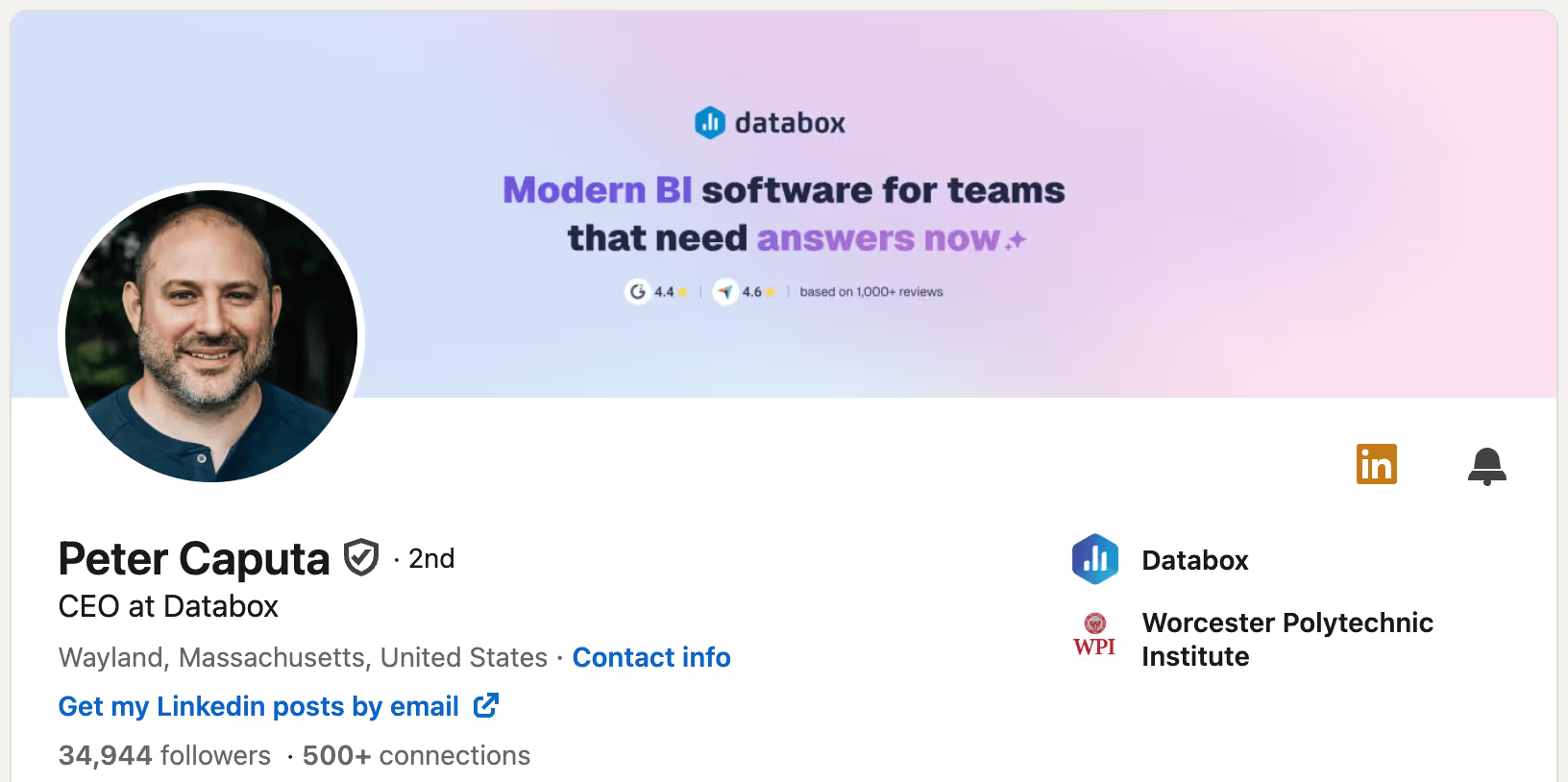
4. Offline presence: Still a power move
Real-world credibility matters – and always will. While 78% of B2B leaders say their customers want more digital sales options, the companies that combine digital with in-person touchpoints grow faster – with nearly 2× more e-commerce growth and 1.4× more customer trust.
That’s why being “out there” pays off. Show up at industry events, speak at conferences, and get recognized in your community.
Offline presence builds a type of trust that can’t be fast-tracked through paid ads. Buyers feel more confident when they know you exist beyond a Zoom window.
5. Website: More than a digital brochure
Buyers expect your website to reflect the same authority you’re claiming elsewhere. This means:
- Thoughtful copy.
- A blog that shows expertise.
- Clear CTAs and explanations of what you do.
And since buyers now spend 83% of their time researching on their own, your website is usually the first place they judge your credibility.
And with more buyers now turning to AI tools to explore products and solutions, your site matters even more – because those tools often pull info straight from it.
This doesn’t mean your site needs to be the fanciest, but it does need to signal: “We know our stuff, and here’s proof.”
A great example comes from Zapier’s site and it all starts right from the homepage – punchy headline, strong social proof, and sharp, clear copy throughout:

6. Case studies: Still the MVP of sales enablement
Generic features and benefits don’t impress anyone. Buyers want to see real-world outcomes.
Who else used your service? What changed for them?
Actually, UserEvidence research shows that 59% of buyers consider customer data the most important trait in customer evidence, while 50% struggle to find a case study they can actually relate to.
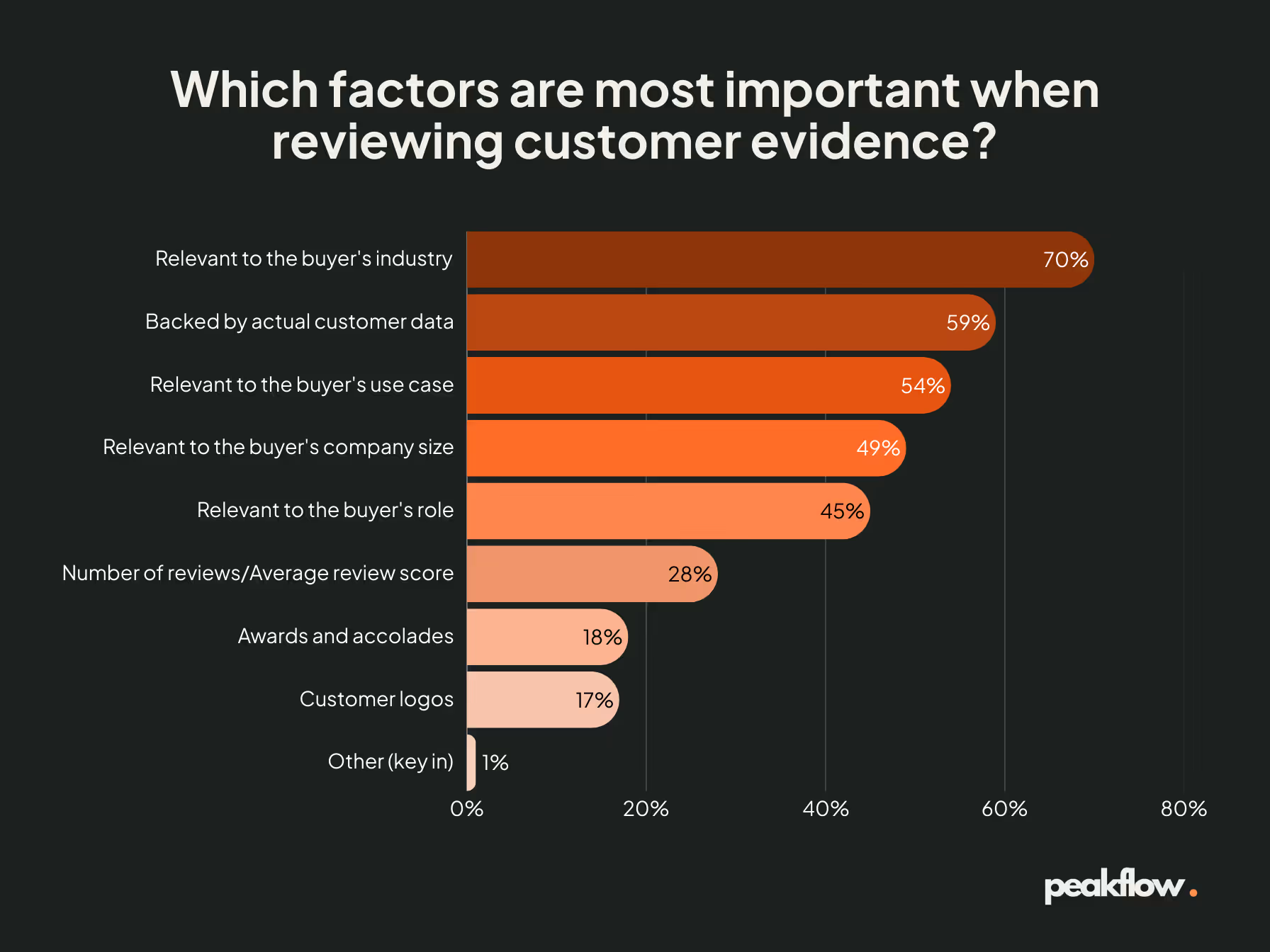
Case studies – especially those featuring familiar companies or roles – build confidence faster than any demo.
Bonus points if they’re interactive, visual, or tied to the buyer's own network (e.g. “Here’s who in your LinkedIn network has used our service”).
High-ticket vs low-ticket: What changes?
Not all B2B offers are weighed on the same scale. Let’s break it down:
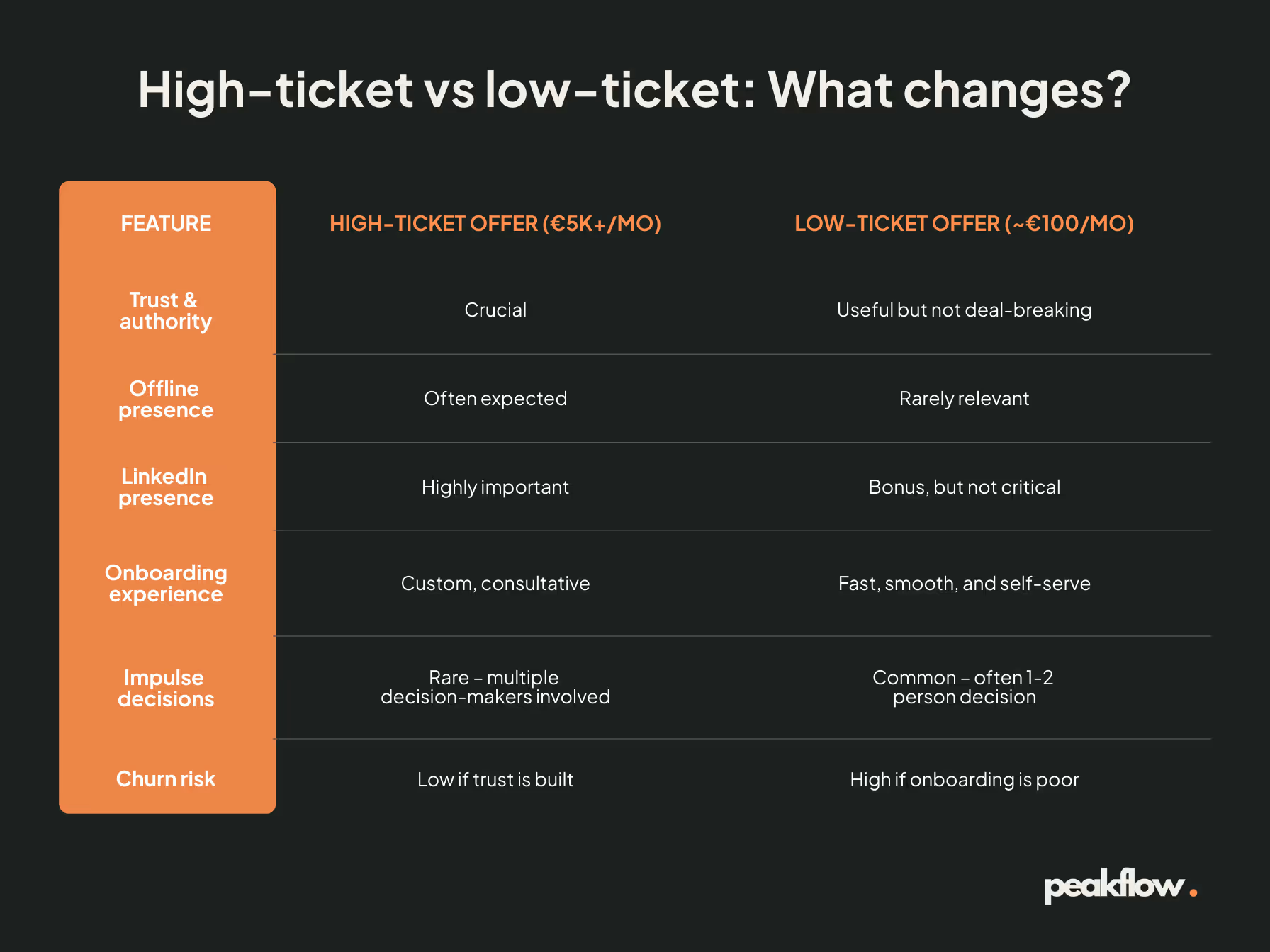
In short: High-ticket offers win on trust, authority, and real-life presence.
Low-ticket offers win on usability and onboarding.
How to win buyers in 2025: A multichannel engagement plan
So how do you actually implement all this?
By building intentional engagement across multiple channels, not just hoping that buyers stumble into your funnel.
Here’s what that looks like:
- LinkedIn: Post at least twice a week from your personal profile. Share play-by-play breakdowns of how you solved a problem for a client. Don’t just repost company content – narrate the behind-the-scenes. Example: “Here’s how we fixed a broken onboarding flow that was costing 40% in churn.”
- Offline events: Pick 1–2 industry events per quarter. Don’t just attend – moderate a panel or sponsor a booth with a demo station. Get real conversations going with people who’d actually buy.
- Website: Feature 2–3 short, punchy case studies on the homepage (“How we helped X company reduce Y by Z%”). Add real client logos and social proof near CTAs. Catch their attention immediately.
- Reviews: After every closed deal or successful delivery, ask for a review on LinkedIn or Reddit. Guide them: “If this was helpful, would you mind sharing 2–3 lines on how it went?” It feels natural if you ask right after a win.
- Content hub or web series: Don’t wait to be invited on podcasts – create your own mini-series. For consulting, SaaS, or cybersecurity, one deep-dive video per month on a hot topic can position you as the go-to. Publish it on your site, slice it for LinkedIn.
Even if you’re great at one of these, buyers today want to see consistency across all. You can’t fake a reputation, but you can build one strategically.
Because how you show up is what actually sells.
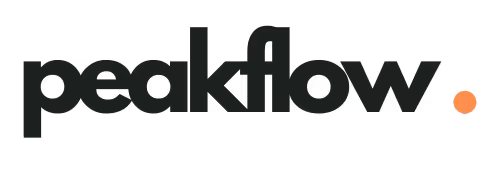
.svg.svg)
.avif)


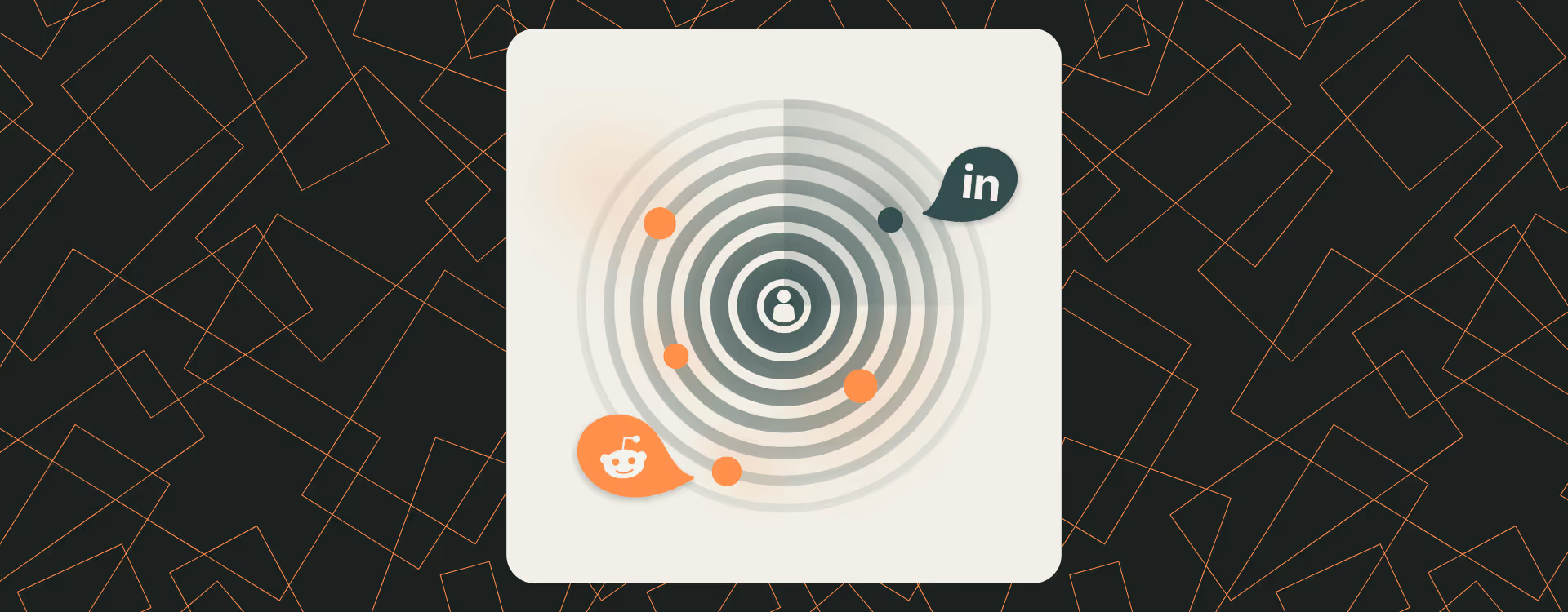
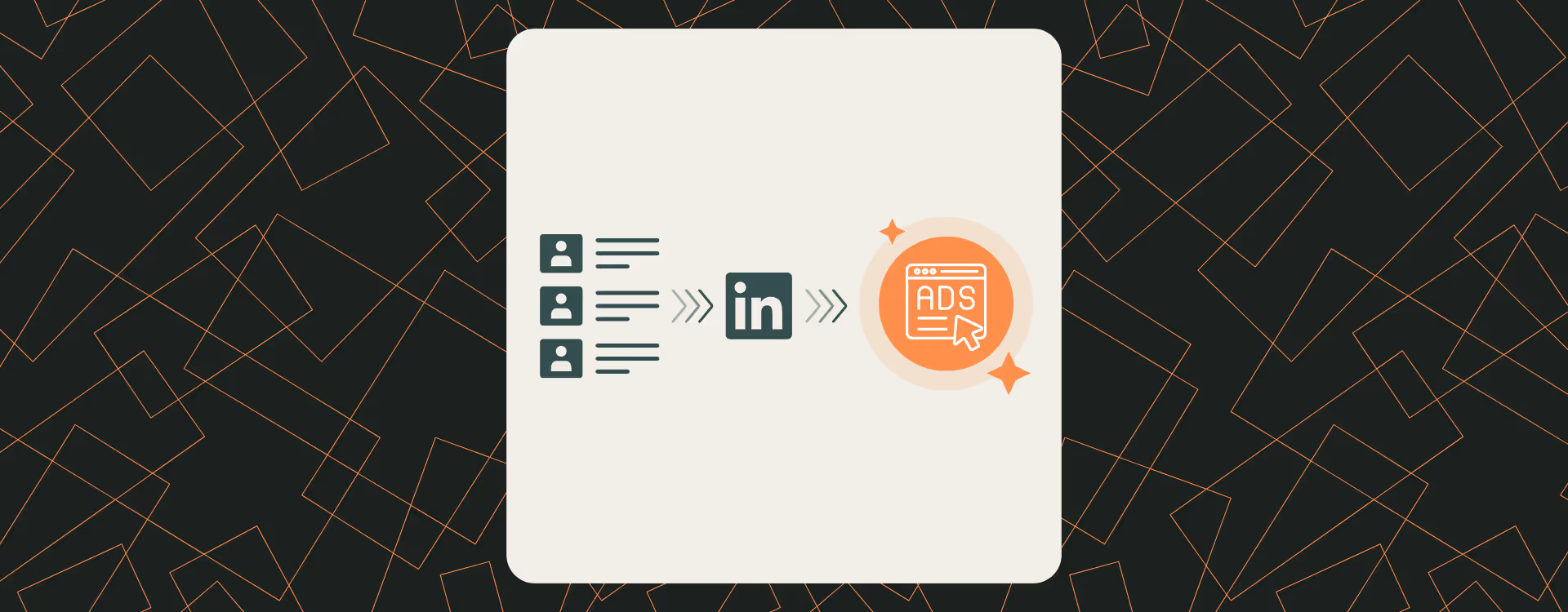

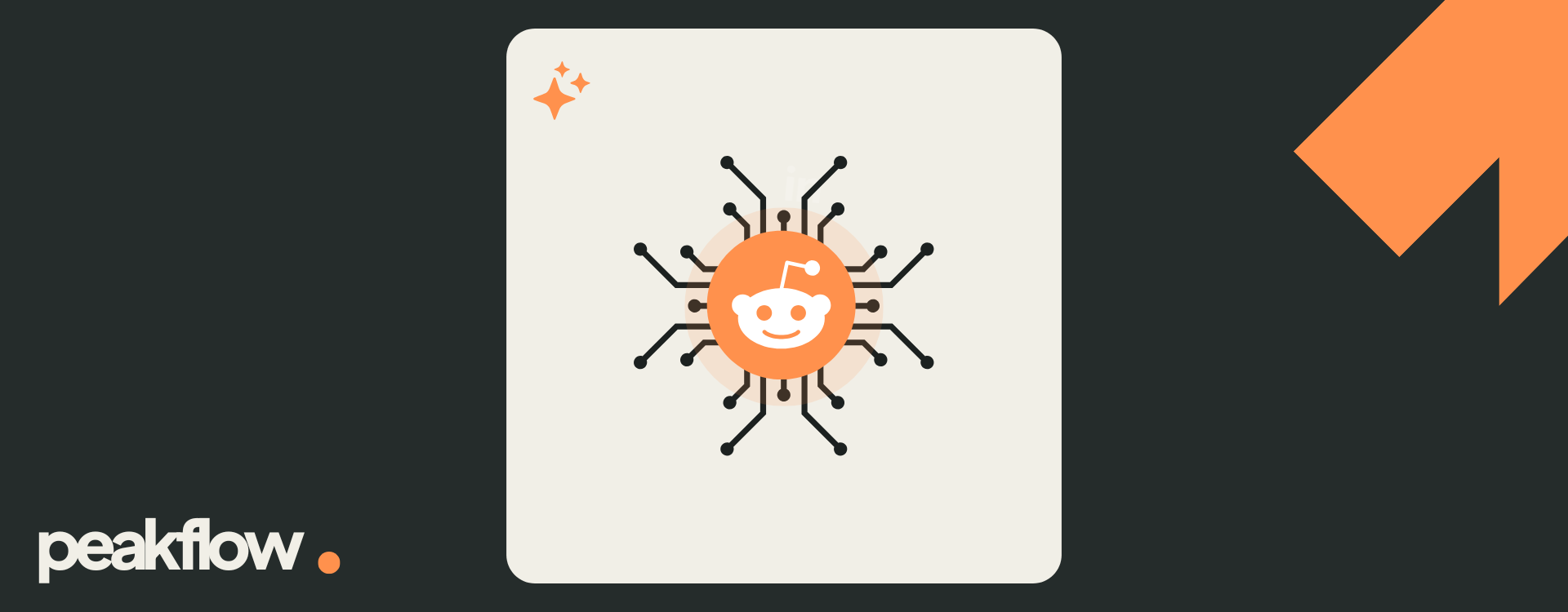
.avif)